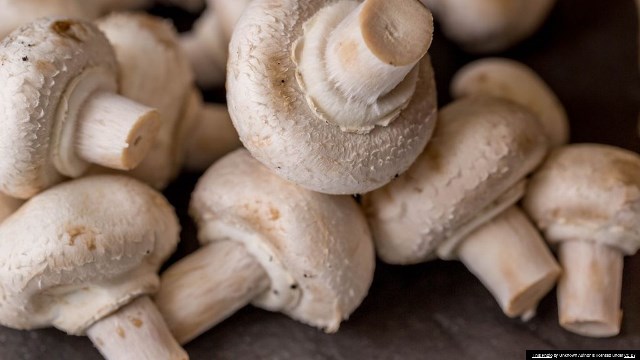Last Updated on October 31, 2024 by Dr. Abadullah Sajid Bashir
What is Irritable Bowel Syndrome (IBS)?
Irritable bowel syndrome (IBS) is a chronic condition that affects the digestive system. People with IBS experience a variety of symptoms, including abdominal pain, diarrhea, constipation, cramping, bloating, heartburn, indigestion, and gas. These symptoms can significantly impact a person’s quality of life, causing both physical and mental distress.
Understanding IBS Symptoms
IBS symptoms vary from person to person. The disease itself is lifelong, but symptoms can be managed effectively through dietary changes and other lifestyle modifications. Diet plays a crucial role in controlling IBS symptoms. Certain foods can worsen symptoms, while others may provide relief.
Food Selection and the FODMAP Diet
A balanced diet is essential for everyone, but it’s especially important for IBS patients. We obtain energy from various food groups, including carbohydrates, proteins, and lipids. Choosing nutrient-rich foods helps maintain a healthy metabolism. Similarly, IBS patients need to be mindful of food choices to minimize digestive issues.
What is a FODMAP Diet?
FODMAP stands for Fermentable Oligosaccharides, Disaccharides, Monosaccharides, and Polyols. These are short-chain carbohydrates that are poorly absorbed by the small intestine. When these sugars reach the large intestine, they interact with gut bacteria and cause a fermentation process, leading to gas production and discomfort.
Types of FODMAPs
Low FODMAP: These foods are low in fermentable sugars and are less likely to cause gas. Examples include strawberries and bananas.
High FODMAP: These foods are high in fermentable sugars and can trigger gas production. Examples include apples.
IBS and the FODMAP Diet
IBS symptoms like gas, constipation, and diarrhea can be very troublesome. Since these symptoms can be significantly reduced by following a low-FODMAP diet, it’s often recommended for IBS patients. The goal is to minimize symptoms and improve overall well-being.
Individualized Response to the FODMAP Diet
An important point to remember is that a low-FODMAP diet may not work the same way for everyone with IBS.
For instance, strawberries (a low-FODMAP food) might alleviate constipation in one patient without causing gas, while worsening diarrhea and discomfort in another. This highlights the need for a personalized approach to dietary management of IBS.
Factors Affecting Response to the FODMAP Diet
Several factors can influence how an individual responds to the FODMAP diet:
Temperature: Environmental temperature can affect how the body reacts to certain foods.
Food Preparation Methods: Cooking methods can alter the FODMAP content of foods. For example, the way a vegetable is cooked (boiled vs. fried) can have different effects.
Body Metabolism: Individual variations in metabolism and digestion can influence how quickly food is processed.
Creating a Personalized Food Plan
IBS sufferers often wonder which foods they should prioritize to minimize symptoms. Here’s a practical approach:
Elimination Phase: Start by eliminating all potential trigger foods from your diet.
Reintroduction Phase: Gradually reintroduce individual foods back into your diet, one at a time, and monitor your symptoms.
Create a Food List: Based on your observations, create a personalized list of safe and trigger foods. This will guide your dietary choices moving forward.
What are mushrooms?
Mushrooms are edible fungi. It is found all over the world. It is also cooked and used as curries and salads. It has no particular taste. It will either taste salty or earthy. Mushrooms are a high FODMAP food.
There are many types of mushrooms. Many mushrooms are poisonous. If a person eats them, his health will deteriorate. While there are some that can cause death to a person by eating them. [1]0. lomo 2-2012:lomo 3/09 (isciii.es)
Benefits
Mushrooms contain copper, potassium, vitamins, proteins and antioxidants, so by eating mushrooms, a person gets health benefits. People should eat mushrooms, but caution is also necessary.[2]Nutritional Value and Health Benefits of Mushrooms – Mushrooms as Functional Foods – Wiley Online Library
Mushrooms contain fibers that are good for diabetes and gas patients. In addition, mushrooms are antioxidants (chemicals that help flush out toxins from the body). They are low in calories and are beneficial in weight loss.[3]Edible Mushrooms: A Comprehensive Review on Bioactive Compounds with Health Benefits and Processing Aspects (ipv.pt)
IBS and mushrooms
Irritable Bowel Syndrome (IBS) is a neuro-gastrointestinal disorder in which patient feels abdominal discomfort, gas, cramping, etc. and patent cannot spent his life in normal way. IBS is not life threatening but it is much problematic for victims. For IBS details Click Here.
Mushrooms have many benefits. But some types are not suitable for IBS patients, because they are high FODMAP, which causes gas and gas is one of the symptoms of IBS.
Because of this, the patient experiences constant indigestion, gas, and discomfort, and the symptoms of IBS appear more than their normal routine. Therefore, the patient should not eat mushrooms. All types of mushrooms have a high FODMAP food. But oyster mushrooms, which have a good taste, are a low FODMAP food and if consumed by an IBS patient, there is no problem.
What should the patient do if the symptoms of IBS appear after eating mushrooms?
If IBS patient face symptoms due to consumption of Mushrooms, than he/she could adjust him/herself by adopting following methods.
1. If the patient has gas, he/she can use hot bottle for release gas.
2. If there is burning sensations, drink cold water.
3. If the symptoms do not decrease, use the medicine prescribed by the doctor.
Written By:
- Dr. Abadullah Sajid Bashir
Reviewed By:
- Dr. Muhammad Khan Malik
- Syeda Noor-ul-Ain Naqvi
For Reviewers Detail Click Here

